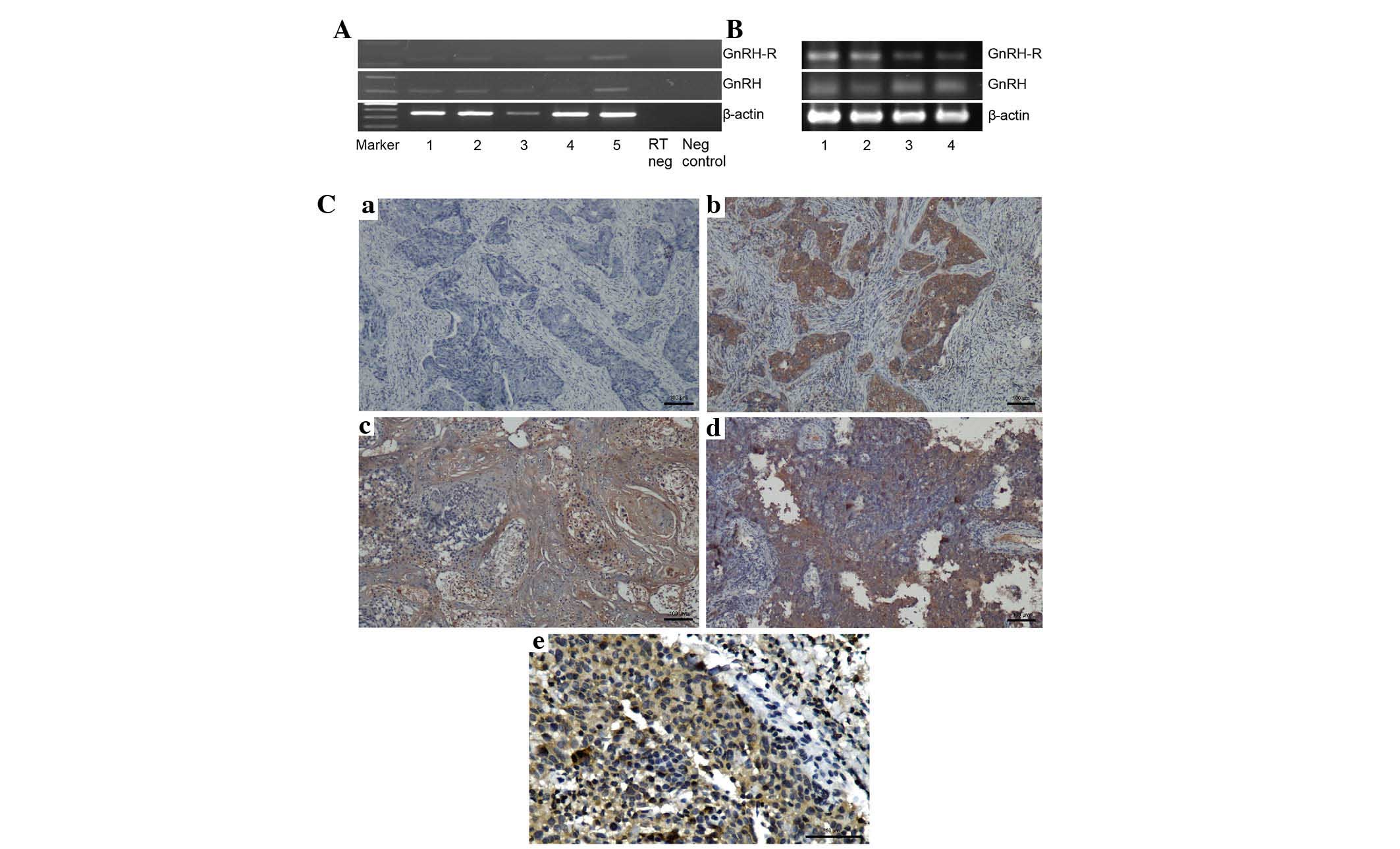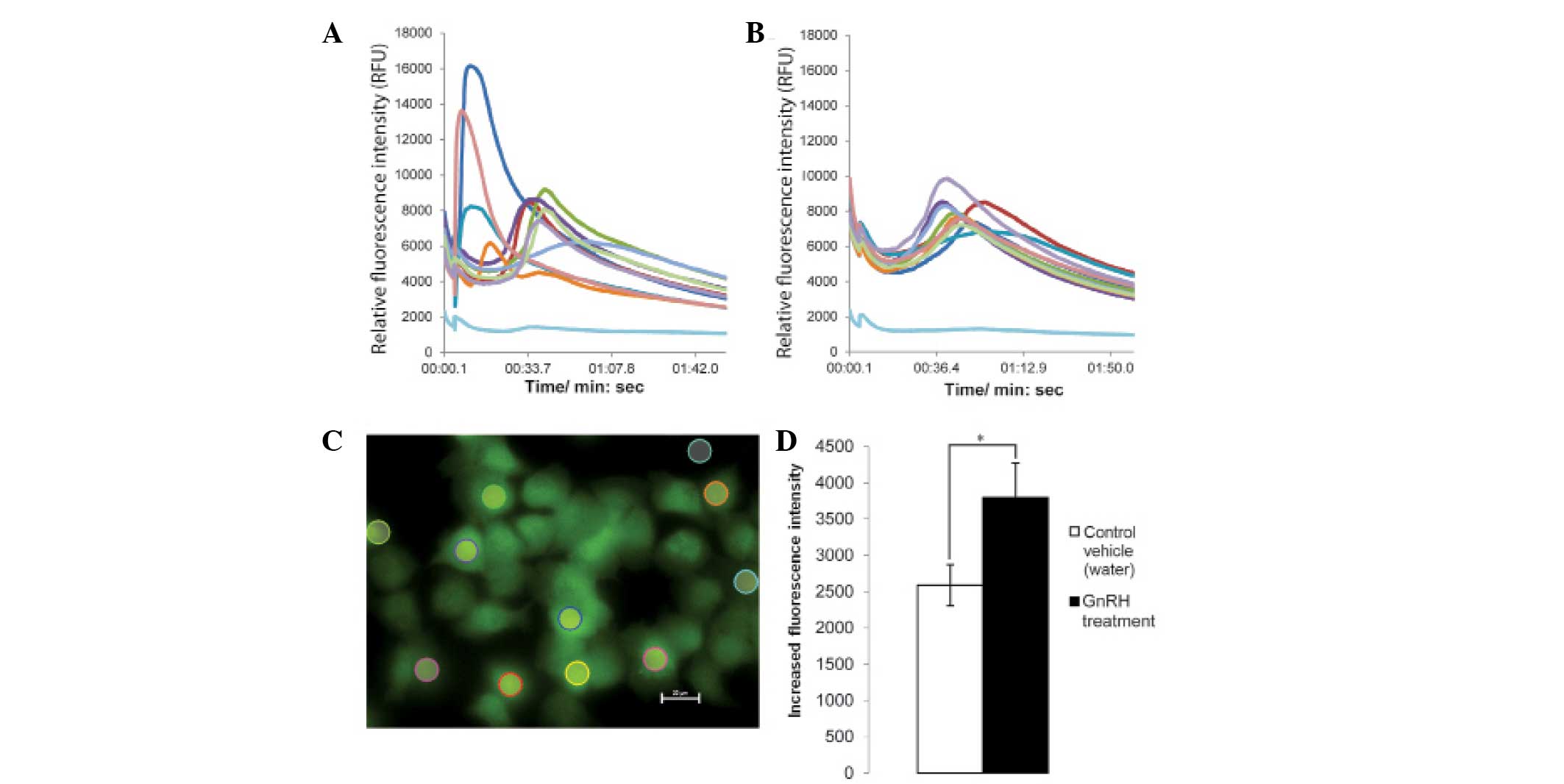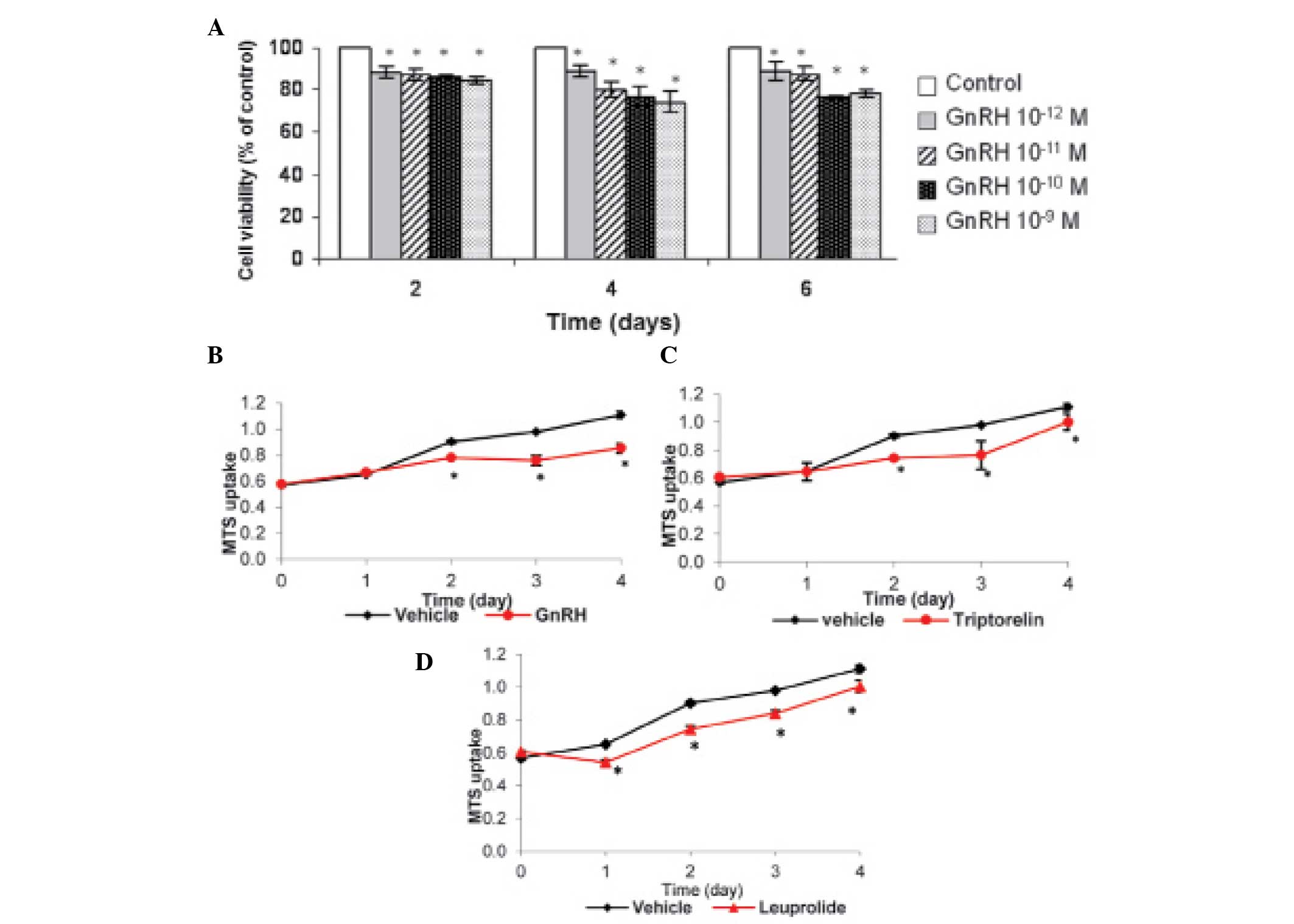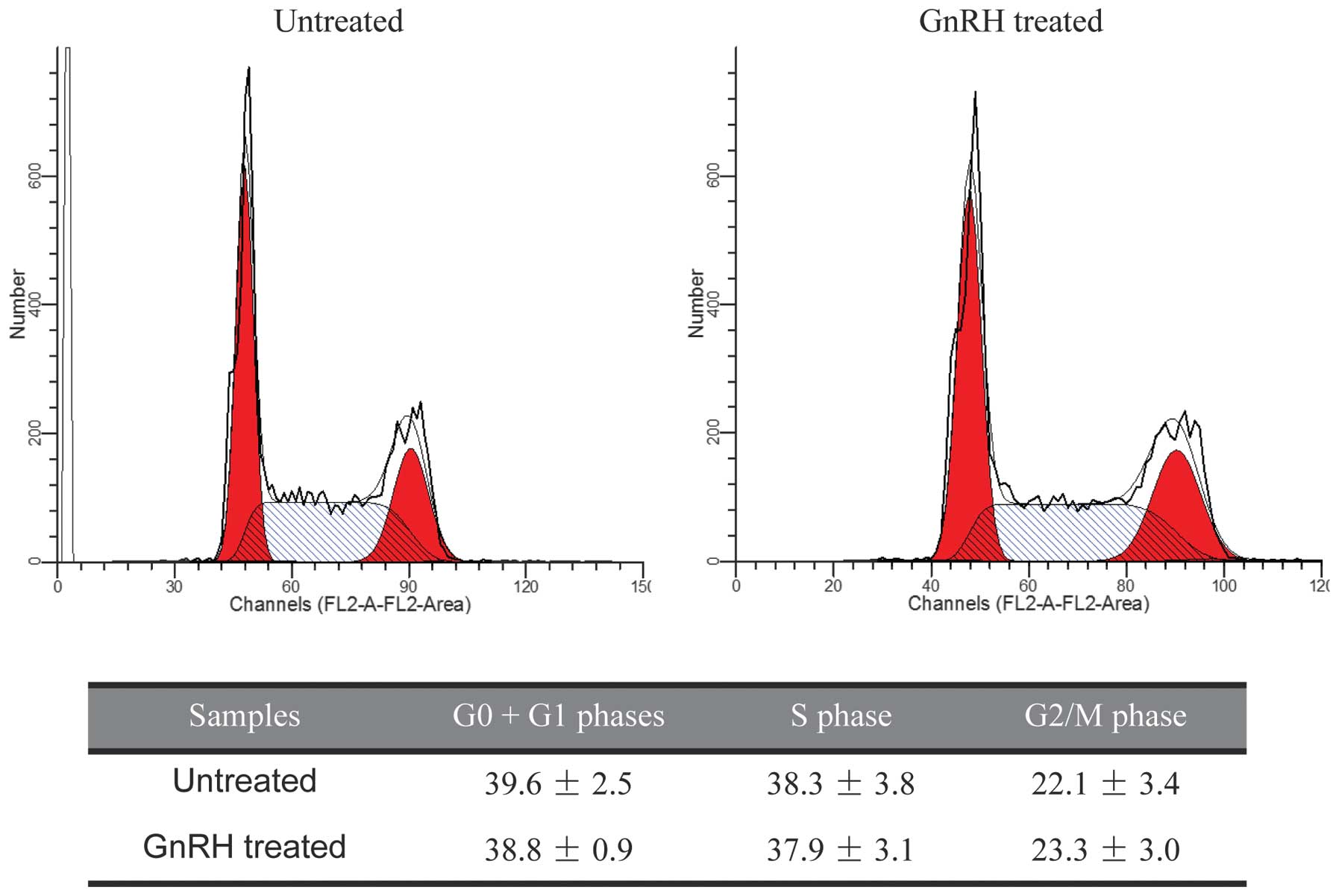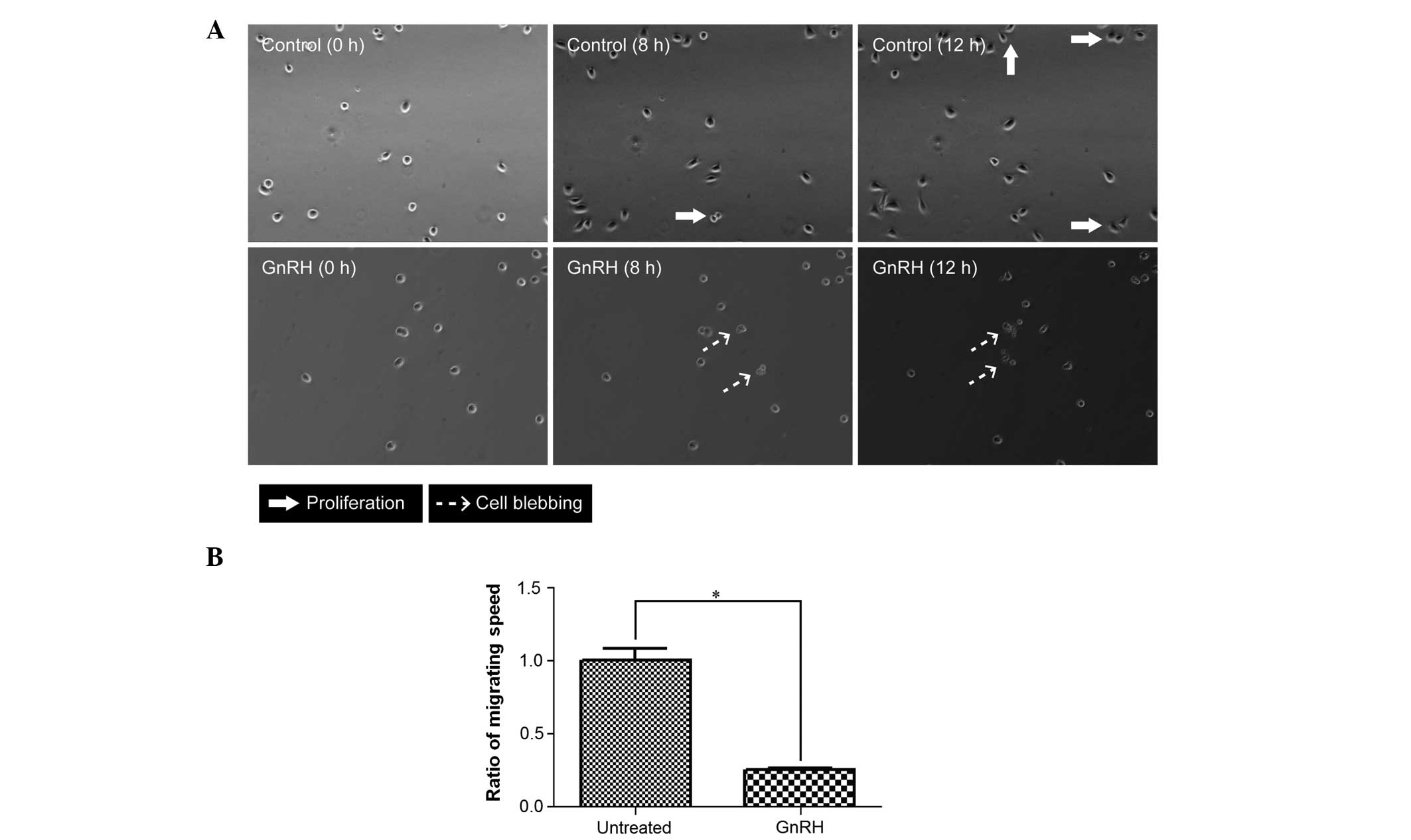|
1
|
Harrison GS, Wierman ME, Nett TM and Glode
LM: Gonadotropin-releasing hormone and its receptor in normal and
malignant cells. Endocr Relat Cancer. 11:725–748. 2004. View Article : Google Scholar : PubMed/NCBI
|
|
2
|
Rothman MS and Wierman ME: The role of
gonadotropin releasing hormone in normal and pathologic endocrine
processes. Curr Opin Endocrinol Diabetes Obes. 14:306–310. 2007.
View Article : Google Scholar : PubMed/NCBI
|
|
3
|
Everest HM, Hislop JN, Harding T, Uney JB,
Flynn A, Millar RP and McArdle CA: Signaling and antiproliferative
effects mediated by GnRH receptors after expression in breast
cancer cells using recombinant adenovirus. Endocrinology.
142:4663–4672. 2001. View Article : Google Scholar : PubMed/NCBI
|
|
4
|
Nagy A and Schally AV: Targeting of
cytotoxic luteinizing hormone-releasing hormone analogs to breast,
ovarian, endometrial and prostate cancers. Biol Reprod. 73:851–859.
2005. View Article : Google Scholar : PubMed/NCBI
|
|
5
|
Schally AV and Nagy A: Chemotherapy
targeted to cancers through tumoral hormone receptors. Trends
Endocrinol Metab. 15:300–310. 2004. View Article : Google Scholar : PubMed/NCBI
|
|
6
|
Labrie F: Hormonal therapy of prostate
cancer. Prog Brain Res. 182:321–341. 2010. View Article : Google Scholar : PubMed/NCBI
|
|
7
|
Park DW, Choi KC, MacCalman CD and Leung
PC: Gonadotropin-releasing hormone (GnRH)-I and GnRH-II induce cell
growth inhibition in human endometrial cancer cells: Involvement of
integrin beta3 and focal adhesion kinase. Reprod Biol Endocrinol.
7:812009. View Article : Google Scholar : PubMed/NCBI
|
|
8
|
Grundker C and Emons G: Role of
gonadotropin-releasing hormone (GnRH) in ovarian cancer. Reprod
Biol Endocrinol. 1:652003. View Article : Google Scholar : PubMed/NCBI
|
|
9
|
Szepeshazi K, Schally AV and Halmos G:
LH-RH receptors in human colorectal cancers: Unexpected molecular
targets for experimental therapy. Int J Oncol. 30:1485–1492.
2007.PubMed/NCBI
|
|
10
|
Moretti RM, Montagnani Marelli M, Mai S
and Limonta P: Gonadotropin-releasing hormone agonists suppress
melanoma cell motility and invasiveness through the inhibition of
alpha3 integrin and MMP-2 expression and activity. Int J Oncol.
33:405–413. 2008.PubMed/NCBI
|
|
11
|
Bahk JY, Kim MO, Park MS, Lee HY, Lee JH,
Chung BC and Min SK: Gonadotropin-releasing hormone (GnRH) and GnRH
receptor in bladder cancer epithelia and GnRH effect on bladder
cancer cell proliferation. Urol Int. 80:431–438. 2008. View Article : Google Scholar : PubMed/NCBI
|
|
12
|
Montagnani Marelli M, Moretti RM,
Januszkiewicz-Caulier J, Motta M and Limonta P:
Gonadotropin-releasing hormone (GnRH) receptors in tumors: a new
rationale for the therapeutical application of GnRH analogs in
cancer patients? Curr Cancer Drug Targets. 6:257–269. 2006.
View Article : Google Scholar : PubMed/NCBI
|
|
13
|
Chang ET and Adami HO: The enigmatic
epidemiology of nasopharyngeal carcinoma. Cancer Epidemiol
Biomarkers Prev. 15:1765–1777. 2006. View Article : Google Scholar : PubMed/NCBI
|
|
14
|
Pua KC, Khoo AS, Yap YY, Subramaniam SK,
Ong CA, Gopala Krishnan G and Shahid H; Malaysian Nasopharyngeal
Carcinoma Study Group: Nasopharyngeal carcinoma database. Med J
Malaysia. 63(Suppl C): 59–62. 2008.
|
|
15
|
Darzy K: Endocrine complications following
radiotherapy and chemotherapy for nasopharyngeal carcinoma.
Carcinogenesis, Diagnosis, and Molecular Targeted Treatment for
Nasopharyngeal Carcinoma. Chen Shih-Shun: InTech China; Shanghai,
China: pp. 133–154. 2012
|
|
16
|
Huang DP, Ho JH, Poon YF, Chew EC, Saw D,
Lui M, Li CL, Mak LS, Lai SH and Lau WH: Establishment of a cell
line (NPC/HK1) from a differentiated squamous carcinoma of the
nasopharynx. Int J Cancer. 26:127–132. 1980. View Article : Google Scholar : PubMed/NCBI
|
|
17
|
Cheung ST, Huang DP, Hui AB, Lo KW, Ko CW,
Tsang YS, Wong N, Whitney BM and Lee JC: Nasopharyngeal carcinoma
cell line (C666-1) consistently harbouring Epstein-Barr virus. Int
J Cancer. 83:121–126. 1999. View Article : Google Scholar : PubMed/NCBI
|
|
18
|
Tsao SW, Wang X, Liu Y, Cheung YC, Feng H,
Zheng Z, Wong N, Yuen PW, Lo AK, Wong YC, et al: Establishment of
two immortalized nasopharyngeal epithelial cell lines using SV40
large T and HPV16E6/E7 viral oncogenes. Biochim Biophys Acta.
1590:150–158. 2002. View Article : Google Scholar : PubMed/NCBI
|
|
19
|
Li HM, Man C, Jin Y, Deng W, Yip YL, Feng
HC, Cheung YC, Lo KW, Meltzer PS, Wu ZG, et al: Molecular and
cytogenetic changes involved in the immortalization of
nasopharyngeal epithelial cells by telomerase. Int J Cancer.
119:1567–1576. 2006. View Article : Google Scholar : PubMed/NCBI
|
|
20
|
Sengupta S, den Boon JA, Chen IH, Newton
MA, Dahl DB, Chen M, Cheng YJ, Westra WH, Chen CJ, Hildesheim A, et
al: Genome-wide expression profiling reveals EBV-associated
inhibition of MHC class I expression in nasopharyngeal carcinoma.
Cancer Res. 66:7999–8006. 2006. View Article : Google Scholar : PubMed/NCBI
|
|
21
|
Chan SY, Choy KW, Tsao SW, Tao Q, Tang T,
Chung GT and Lo KW: Authentication of nasopharyngeal carcinoma
tumor lines. Int J Cancer. 122:2169–2171. 2008. View Article : Google Scholar : PubMed/NCBI
|
|
22
|
Imai A and Tamaya T: GnRH receptor and
apoptotic signaling. Vitam Horm. 59:1–33. 2000. View Article : Google Scholar : PubMed/NCBI
|
|
23
|
Morgan K, Stewart AJ, Miller N, Mullen P,
Muir M, Dodds M, Medda F, Harrison D, Langdon S and Millar RP:
Gonadotropin-releasing hormone receptor levels and cell context
affect tumor cell responses to agonist in vitro and in vivo. Cancer
Res. 68:6331–6340. 2008. View Article : Google Scholar : PubMed/NCBI
|
|
24
|
Goodwin D, Varamini P, Simerska P and Toth
I: Stability, permeability and growth-inhibitory properties of
gonadotropin-releasing hormone liposaccharides. Pharm Res.
32:1570–1584. 2015. View Article : Google Scholar
|
|
25
|
Conn PM, McArdle CA, Andrews WV and Huckle
WR: The molecular basis of gonadotropin-releasing hormone (GnRH)
action in the pituitary gonadotrope. Biol Reprod. 36:17–35. 1987.
View Article : Google Scholar : PubMed/NCBI
|
|
26
|
Cheung LW and Wong AS:
Gonadotropin-releasing hormone: GnRH receptor signaling in
extrapituitary tissues. Febs J. 275:5479–5495. 2008. View Article : Google Scholar : PubMed/NCBI
|
|
27
|
Chen CL, Cheung LW, Lau MT, Choi JH,
Auersperg N, Wang HS, Wong AS and Leung PC: Differential role of
gonadotropin-releasing hormone on human ovarian epithelial cancer
cell invasion. Endocrine. 31:311–320. 2007. View Article : Google Scholar : PubMed/NCBI
|
|
28
|
Enomoto M, Utsumi M and Park MK:
Gonadotropin-releasing hormone induces actin cytoskeleton
remodeling and affects cell migration in a cell-type-specific
manner in TSU-Pr1 and DU145 cells. Endocrinology. 147:530–542.
2006. View Article : Google Scholar
|
|
29
|
Cheung LW, Leung PC and Wong AS:
Gonadotropin-releasing hormone promotes ovarian cancer cell
invasiveness through c-Jun NH2-terminal kinase-mediated activation
of matrix metal-loproteinase (MMP)-2 and MMP-9. Cancer Res.
66:10902–10910. 2006. View Article : Google Scholar : PubMed/NCBI
|
|
30
|
Aguilar-Rojas A and Huerta-Reyes M: Human
gonadotropin-releasing hormone receptor-activated cellular
functions and signaling pathways in extra-pituitary tissues and
cancer cells (Review). Oncol Rep. 22:981–990. 2009. View Article : Google Scholar : PubMed/NCBI
|
|
31
|
Kakar SS, Malik MT, Winters SJ and
Mazhawidza W: Gonadotropin-releasing hormone receptors: Structure,
expression and signaling transduction. Vitam Horm. 69:151–207.
2004. View Article : Google Scholar
|
|
32
|
Arencibia JM and Schally AV: Luteinizing
hormone-releasing hormone as an autocrine growth factor in ES-2
ovarian cancer cell line. Int J Oncol. 16:1009–1013.
2000.PubMed/NCBI
|















